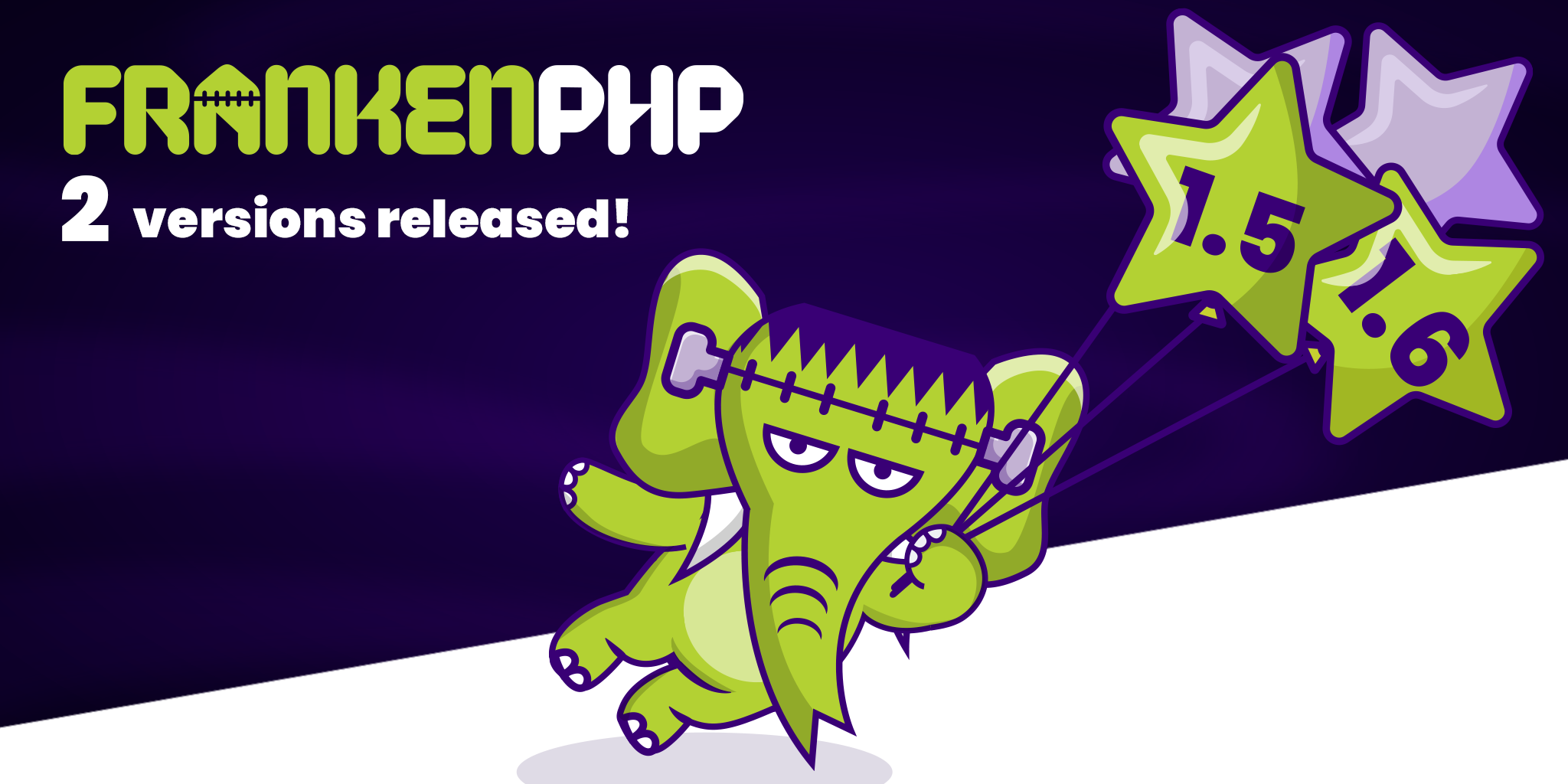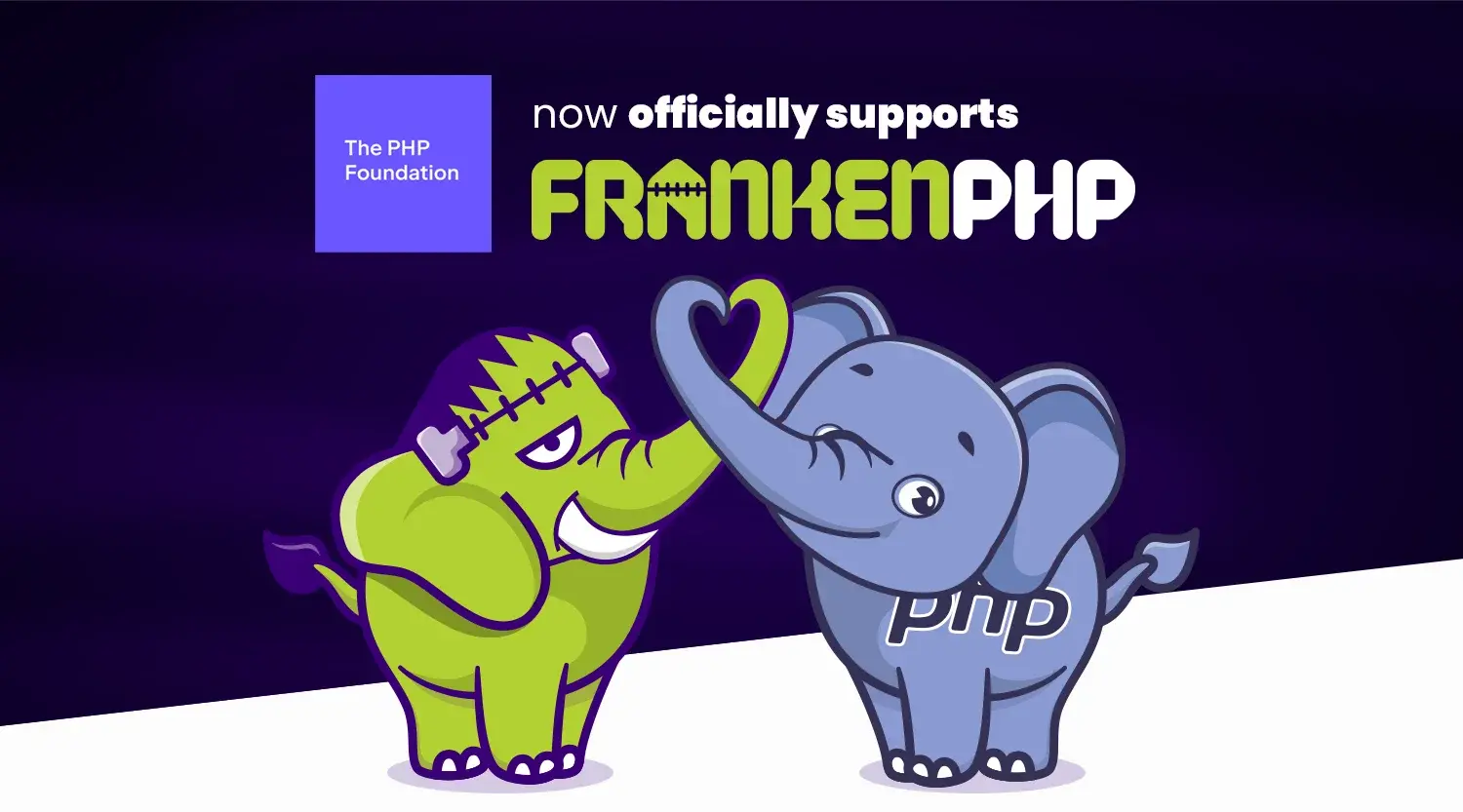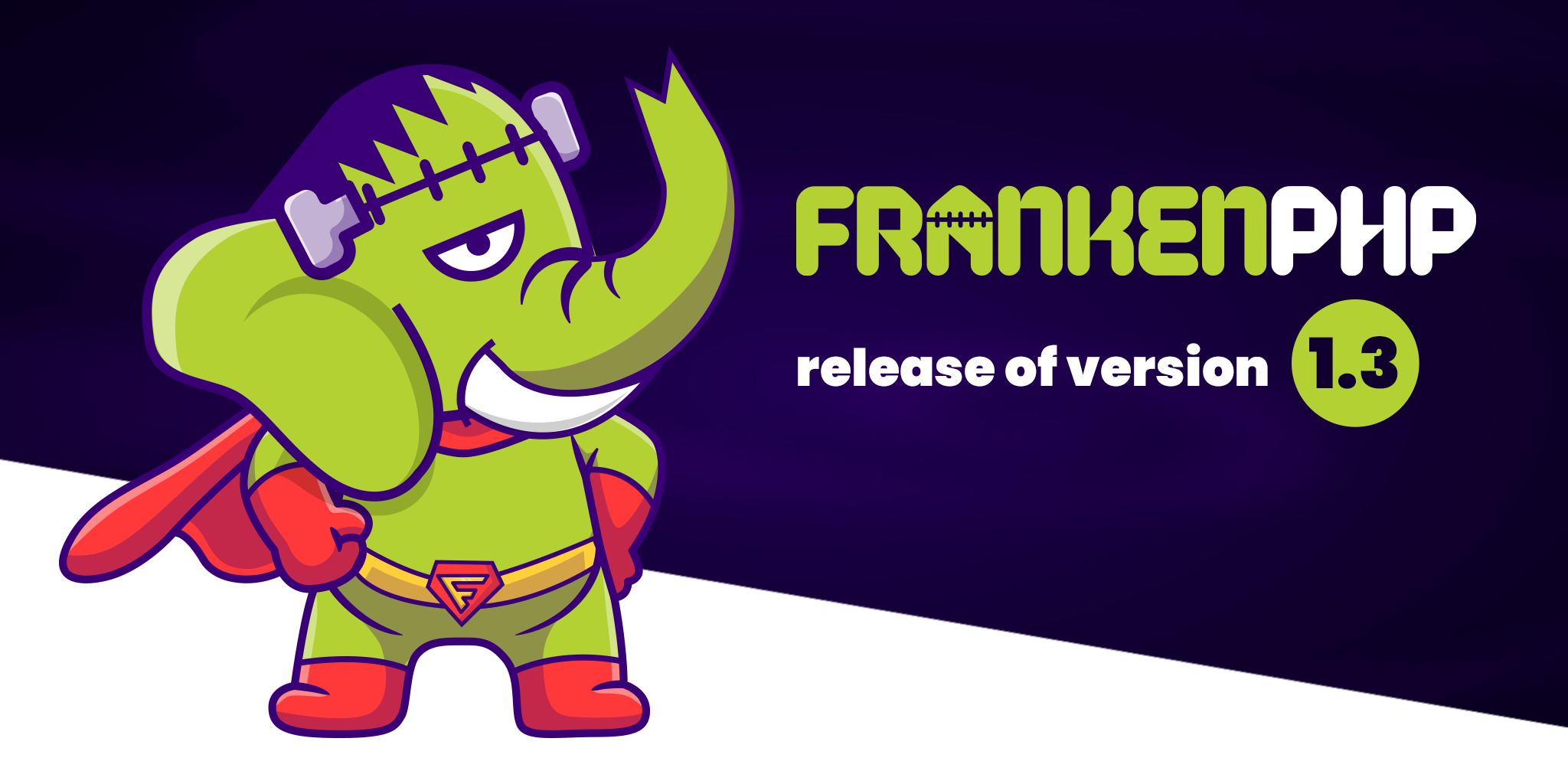FrankenPHP 1.5 and 1.6 (released today) contain many major features and fixes that greatly improve the usability and performance of the project! Let’s review some of them. Thread Autoscaling Until now, it was necessary to statically define the number of threads that FrankenPHP uses to handle PHP requests. By default, FrankenPHP starts two times more…
Category: Go
FrankenPHP Is Now Officially Supported by The PHP Foundation
FrankenPHP, a modern high-performance PHP application server created by Kévin Dunglas and sponsored by Les-Tilleuls.coop, is now officially supported by the PHP Foundation. FrankenPHP integrates PHP directly into Go and Caddy, simplifying deployment, improving performance, and reducing costs. It powers real-time features, supports advanced hosting scenarios, and offers a performance-boosting “worker mode” already integrated by…
FrankenPHP 1.3: Massive Performance Improvements, Watcher Mode, Dedicated Prometheus Metrics, and More
I’m thrilled to announce the immediate availability of FrankenPHP 1.3, just in time for SyliusCon, where I’ll be presenting this new version this afternoon. First of all, I’d like to thank all the contributors, and in particular Alexander Stecher and Rob Landers, the other two project maintainers, who have done a titanic job. An incredible…


